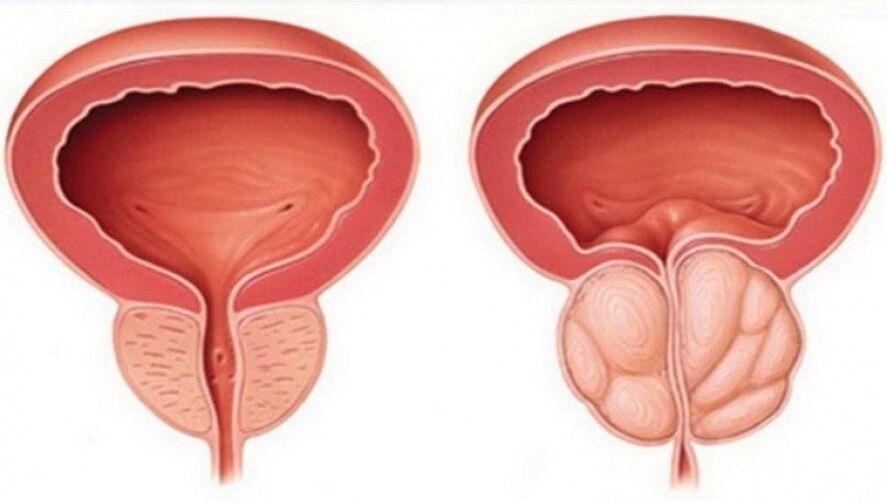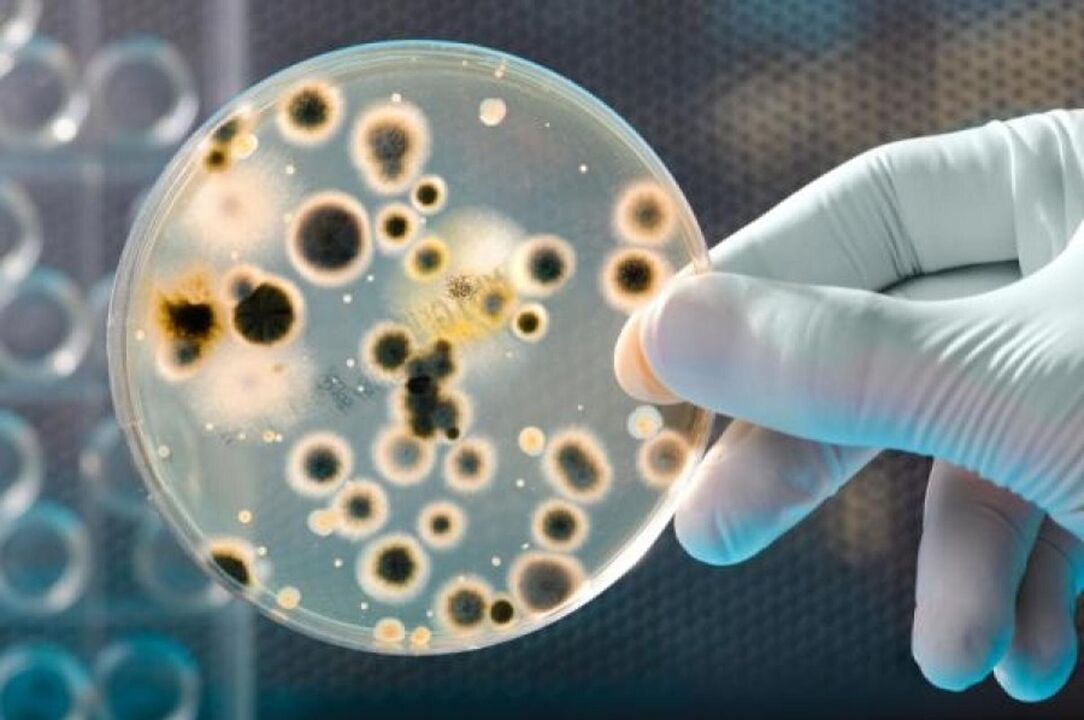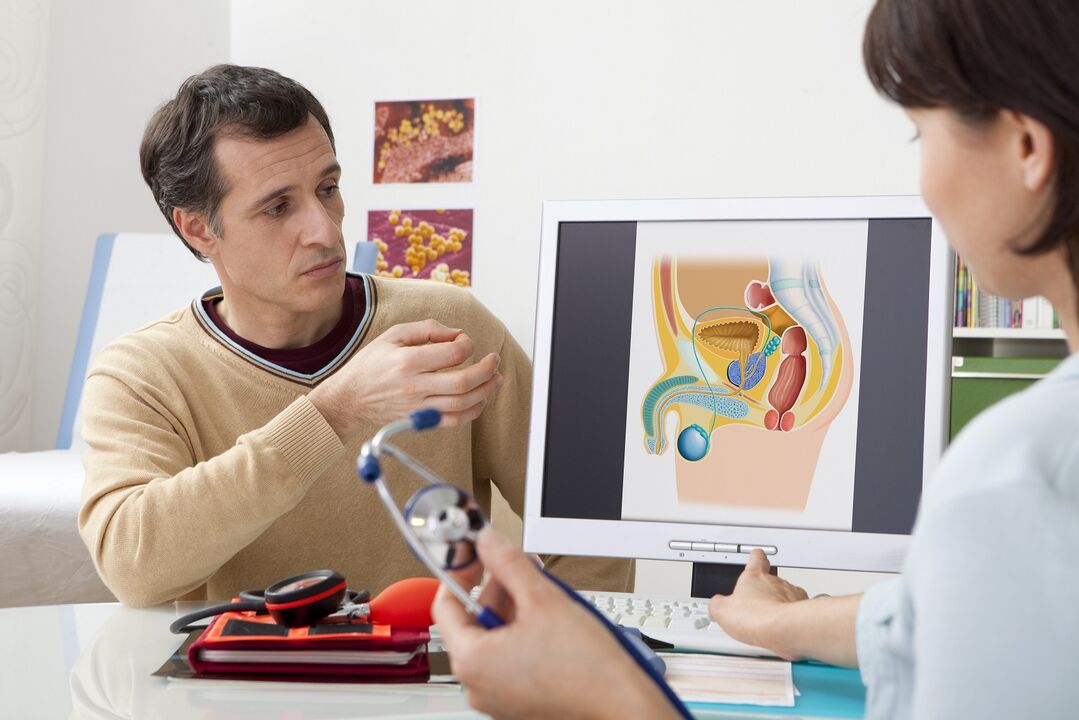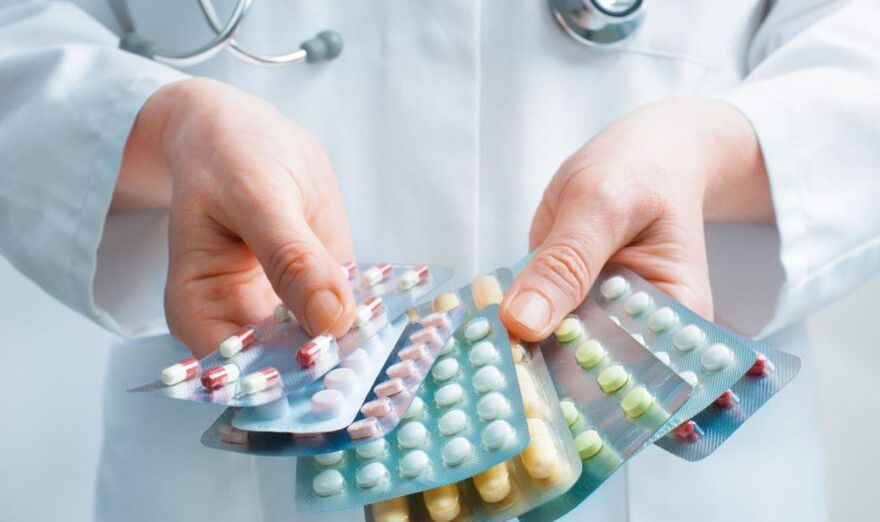According to the BME, prostatitis is an inflammatory process that occurs in the prostate gland in men with parenchymal and interstitial damage. Treating prostatitis in men is a long and difficult process, often due to being completely unaware of the disease in the first place. What are prostatitis, what are their causes and the first signs, what you need to know on the topic of "diagnosis" and modern methods of treating prostatitis. All men need to know about prostatitis in this review.

Ab ovo - from eggs
We are not talking about Horace's satyrs, in this case we are interested in everything related to prostatitis, from the beginning to the final "cry" of the treatment. Symptoms of prostatitis are found in men during the period of active sexual activity, from 25 to 45 years old, on the topical video you can study in detail everything that is related to the basis ofdisease, its causes and symptoms, specificity of diagnosis and treatment.
The reasons for the development of prostatitis are many. With prostatitis, infectious factors have the greatest influence on the development of the disease:
- Acute form. The flora of the tailbone act as provocations.
- Chronic form. The reason for its development is more widespread, since the main factors of prostatitis in men are: gonococci, Trichomonas, Gr + and Gr-bacteria, mycobacterium tuberculosis. In rare cases, the diagnosis reveals mycoplasmas, viruses, fungi, chlamydia, etc. v.
It is worth noting that chronic prostatitis is caused by pathogens that have entered the prostate gland, which may later have a pathogenic and bacterial nature. The acute form is often provoked by external causes: hypothermia, trauma to the urethra or bladder injury caused by endoscopic or various manipulations, hemodynamics and as a result violation of blood circulation andlymph nodes in the pelvis (congestive prostatitis), hormonal or autoimmune disorders.

Normally, you can only hear about one type of prostatitis - infectious, however, according to WHO, bacterial prostatitis accounts for no more than 10% of all cases, while prostatitisChronic bacterial paralysis is observed in 90% of cases.
Table 1. Pathological features
| Categories for prostatitis | Acute infection | The presence of pathogens in the bile of the prostate gland or the third part of the urine | Level (increased) leukocytes with m/s excretion or urine |
| 1 cat. Acute bacteria | + | + | + |
| 2 cats. Chronic bacteria | - | + | Not sure (yes or no) |
| 3 a. Chronic pelvic pain syndrome of an inflammatory nature, not caused by bacteria | - | - | + |
| 3 b. Prostatitis, non-inflammatory pelvic pain syndrome | - | - | - |
| 4 cats. Asymptomatic inflammatory process | - | Unsure (yes or no) | Unsure (yes or no) |
The etiology of bacterial prostatitis in acute and chronic manifestations has been more fully studied, in most cases familial bacteria become the causative agent. Enterobacteriaceae (bacillus E. coli). The role of atypical microorganisms as a cause of prostatitis (ureplasma, chlamydia, mycoplasma) is currently considered to be incompletely demonstrated. Symptoms of prostatitis in men with signs of weakened immunity, especially with HIV, can be caused by yeast (Candida spp. ) or mycobacterium tuberculosis.
Before the era of antibiotics, the bacteria Neisseria gonorrhoeae played an important role in the development of prostatitis, particularly when it became the cause of abscesses.
The cause of the bacterial form of prostatitis has not been fully studied, although urologists have thoroughly studied the list of disease genetic factors that may cause prostatitis to play a role. important in the occurrence of prostatitis in the absence of microorganisms. Thus, at the heart of the causes of nonbacterial prostatitis are small-pelvic stagnation processes, circulatory disturbances, endostatic regurgitation of urine, and autoimmune aseptic inflammatory processes. .
Pain or not - that's the question
What does a man look like with prostatitis? For someone far removed from medicine, and not even well versed in urological matters, an individual's male appearance was no different from the crowd of others. And only an experienced therapist, from the first complaints of the patient, understands where the root of the problem is ripe and what needs to be done to get rid of it.

The symptoms of prostatitis are often described by several phrases, highlighting the brightest moments, and this is a cruel joke to a man. Relying on such imprecise definitions, he ignores the really important bells and whistles, believing that the disease does not exist, even though in reality the clinical picture depends on the nature of the changes. morphology in the prostate gland.
The earliest symptoms may be due to the following types of prostatitis:
- Catarrhal prostatitis. Dull pain in the perineum, spreading to the sacrum, frequent urges at night.
- Cystic prostatitis. Difficult and frequent urination, sometimes with delayed menstruation. Pain when "urinating", which is worse at the end of the process of urinating, as well as when having a bowel movement. Mild fever.
- Parenchymal prostatitis. There are obvious symptoms of dysuria, often AUR, pain on spontaneous recovery, general intoxication with temperature up to 40 C.
In the case of prostatitis with abscess formation, the symptoms are brighter with the abscess possibly opening into the rectum or into the prostatic portion of the urethra. With such a breakthrough, the symptoms subside. If the abscess opening occurs in the prostate tissue or in the perineum region, imaging symptoms: swelling, redness of the skin with marked fluctuations may be observed. At the same time, the man's condition deteriorated significantly.
It is not possible to start a comprehensive treatment of prostatitis without a comprehensive examination of the man, diagnosis and analysis of symptoms that can directly indicate the type of disease.
In general, it is common to distinguish between acute and chronic processes of prostatitis; On a topical video on the Internet, you can learn in detail about the symptoms that refer to one form or another. Let's consider this issue in more detail.
Acute - its typical symptoms are characterized by the manifestation of three stages: catarrhal, follicular and parenchymal. They are described in detail above.

The most interesting thing about the symptoms is the chronic form of prostatitis, as there is a lot of variation in the symptoms. In general, the effective treatment of prostatitis depends on the prostatitis or, rather, the type of disease.
In the chronological period, the following dates can be distinguished:
- Chronic prostatitis is rarely the result of an acute process.
- Primary prostatitis disappears with the symptoms cleared.
- A characteristic symptom of chronic is less discharge from the urethra during bowel movements.
- The first symptoms, as a rule, are not manifested, the pathological process develops on its own for many years. It is initiated by prostatitis (a blockage in the capillaries), which easily turns into a bacterial infection of the prostate gland.
- The specific pathogenic microflora is not the cause of chronic prostatitis, but the chronic process itself is a complication of the inflammatory process caused by the action of ureaplasma, Trichomonas, chlamydia and gonococcus.
What does a man feel with chronic prostatitis? Patient evaluations show that there is usually a mild pain in the perineum at first, with little discharge, which most men usually don't notice. The next stage is a combination of the following symptoms: burning sensation in the urethra, urinary disturbance, general discomfort. Frequent hot flashes during sex make men depressed, irritable or depressed.
It is important to understand that all of these signs are not necessarily present in each specific chronic case, which further complicates the diagnosis in the early stages of the disease. Symptoms tend to change location, even being misleading.
Long-term syndrome
What can you expect from chronic prostatitis? Without timely diagnosis and treatment - nothing good, any specialist will confirm this. This type of prostatitis is characterized by 3 syndromes:
Pain
The prostate itself is not damaged, but many nerve endings that pass through it and are nearby, inevitably participate in the inflammatory process. The pain can be of varying intensity - from slightly excruciating, causing discomfort, to strong, not allowing you to sleep peacefully. Pain in all adjacent regions (scrotum, sacrum, perineum), pain due to prostatitis must be distinguished from similar symptoms of other diseases.

Dysuria
Urinary retention always indicates a malfunction in the urinary system, but the cause of this is revealed during the diagnostic process. The increased prostate mass inevitably compresses the urethra, and the flow of urine is disrupted, followed by the urge to go to the bathroom frequently, the feeling that the bladder is not full. With advanced prostatitis, there is compensatory hypertrophy of the muscular layer of the bladder and ureters. At this point, the symptoms of dysuria subside, but again return with an intensified form.
Sex without pleasure
Decreased intimate life - these are the first symptoms that men notice, and they themselves, as the reviews show, compel them to visit a doctor. Frequent nocturnal erections, erased orgasms, poor erections and rapid ejaculation, pain during sex - that's what worries men the most. In the advanced chronic phase, nothing good can be expected from prostatitis; Erectile dysfunction often develops.
The degree of sexual dysfunction in men is not the same, someone begins to have sex and somehow completes it, ignoring the characteristic bells. For some, even the initial weak response of the penis to a seductive stimulus becomes debilitating and begins strange experiences that turn into persistent depression. The specter of impotence is difficult for patients who have problems with the prostate gland, almost always specialists and relatives find that prostatitis spoils the personality.
To learn more about this disease, you can study a thematic video, where experts explain many nuances of the pathology.
What to write on the card?
What records will appear in the patient's medical records and what final diagnosis will be established depends on a series of initial studies, starting with the patient's visit to the urologist and the complaints of the patient. his complaint (history) to the final stage of diagnostic measures. What exactly is ordered depends on the type of prostatitis, its omission, and the patient's consent to specific diagnostic procedures.
In general, the diagnosis includes:
- Prehistoric. The doctor will ask for details about all complaints and symptoms, pre-conditions of the disease, etc. v.
- Urine analysis.
- Prostate massage (digital proctoscopy + discharge).
- Prostate ultrasound.
- Sperm X-ray.
- Prostate biopsy (if indicated).
What does diagnostics provide and is it so important? If you read patient reviews, you can usually understand that most men are trying to avoid many stages of diagnosis, while motivations are very different. The price of such indifference is your own health! It is important to remember that prostatitis can only be cured if it is "discovered" in time and the diagnosis is made correctly with the definition of the form of the disease and its cause.
How to be healthy forever
So, the man understands that he has prostatitis, what awaits him in the future and is it possible to return the lost health? It is important to understand that you will have to get rid of prostatitis 2 times longer than it took to develop. Moreover, if the pathological process is almost beyond the man's attention, then the treatment of prostatitis will take place with his direct involvement. Whether acute or chronic prostatitis can be cured - yes, if you follow all the recommendations of your doctor, in severe cases in a chronic form, during treatment, it is possible to achievesteady remission.

The stages of prostatitis treatment will depend directly on what the doctor ultimately finds during the exam, on the type of disease, the patient's age, and physical data.
Treatment regimens are always strict on an individual basis, but the following may be present:
- Antibacterial therapy.
- Physiotherapy methods.
- Phytotherapy.
- Designation of immunomodulators.
- Urinary massage.
- Physical therapy.
The price of each stage of treatment is different, depending on the total cost of the prescribed drugs, complementary methods, and the clinic. Post-treatment precautions have an important reason - they prevent the return of the disease. Prevention is directly and closely linked to treatment, and the basics of prevention are just as important as complying with all the doctor's orders during treatment.
Treatment of acute form
In the acute phase, oral antibiotics must be taken according to the schedule. In case of chlamydial infection, drugs of the cephalosporin family are indicated.
The duration of the course is substantial, on average, antibiotics are taken for at least 3-4 weeks to prevent recurrence. Sometimes doctors continue treatment for a longer time, antibiotics are combined with pain relievers to relieve pain.
Antibiotic treatment is carried out according to the following rules:
- Bacterial cultures are required to determine the susceptibility of the organism to the drug.
- Side effects and contraindications of the drug are taken into account.
- They take into account the previous course of treatment, when, what means were used and the outcome.
The need for additional treatments is determined by the attending physician, it should be remembered that massage is contraindicated in the acute form of prostatitis, as it stimulates the spread of bacteria throughout the body. body, followed by sepsis and sepsis.

Chronic form treatment
It is important to remember that it is not possible to get rid of a chronic disease quickly, in principle the disease has evolved over the years and even doctors in their field can eradicate it in a few days. week. No need to take the words of people who are cured in 2-3 days. Treatment is aimed at stopping the concentration of infection, restoring immunity in men and the work of the prostate gland, as well as preventing exacerbations - this takes time.
The course of antibiotic treatment lasts from 4 to 12 weeks, the treatment effect is low, and the drug continues to be used. Usually, antibacterial drugs are prescribed in combination with other anti-inflammatory drugs. In advanced cases, surgery is offered to remove part or all of the prostate.
No bacteria and symptoms
A characteristic difference of therapy is that there are no antibiotics, the absence of pathogenic microflora, they are simply not needed. But sometimes experts prescribe a short course of the drug for 2-4 weeks.
The treatment of bacterial prostatitis is based on the use of physiotherapeutic methods: electrophoresis, ultrasound, laser therapy, electromagnetic radiation and symptomatic therapy with systemic strengtheningpatient immunity.
Dietary and lifestyle changes also underpin the treatment of nonbacterial prostatitis, bathing, alpha blockers are indicated.
Prostatitis without symptoms is difficult to detect; In the diagnosis, the PSA method is used, followed by a 2-week course of antibiotics. Then, individual symptomatic treatment is selected.
In general, the treatment of any type of prostatitis is a long-term phenomenon and is not always pleasant for the patient herself. In addition to the physical discomforts, a man is affected psychologically because the most precious part of his body is affected - the intimate part. Reviews of people who have been cured of the disease show that only strict adherence to the doctor's instructions, combined with dietary and lifestyle changes, is effective. The cost of a frivolous attitude is very high - a man not only loses his health, but his entire life, character and relationships with others change. To prevent this, it is necessary to monitor the health of the prostate gland and eliminate the causes that cause the development of diseases.































